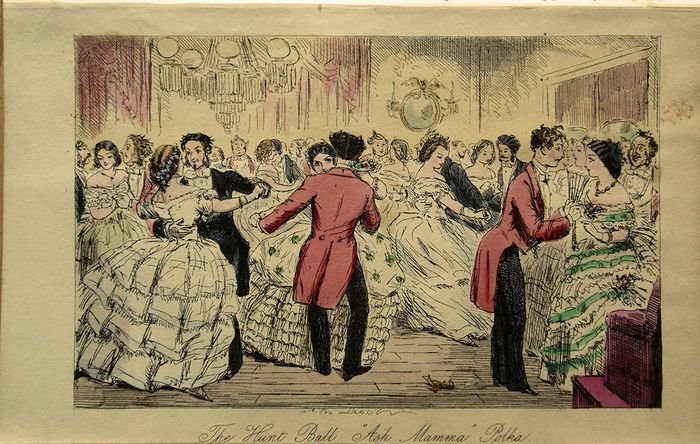Annotation:Ask Momma: Difference between revisions
No edit summary |
No edit summary |
||
| Line 24: | Line 24: | ||
</font></p> | </font></p> | ||
<p><font face="Century Gothic" size="3"> | <p><font face="Century Gothic" size="3"> | ||
<font color=red>''Printed sources''</font> : - | <font color=red>''Printed sources''</font> : - Thomas Westrop ('''One Hundred and Fifty Melodies for the Violin. Adapted Also for the Flute, or Any | ||
<br> | Treble Instrument'''), London, c. 1860. <br> | ||
<br> | <br> | ||
</font></p> | </font></p> | ||
Revision as of 20:09, 21 December 2019
X:1 T:Ask Momma M:2/4 L:1/8 R:Polka K:G gB d2|fA c2|eFBA|GB D2|GB d2|fA c2|eFBA|Gz gz:| |:DBcB|Dded|Aaba|Aaba|DBcB|Dded|Aaba|gggz:| |:C2 E>G|c2c2|c2 B>A|B4|B,2 D>F|A2A2|A2 G>F|G4| E2 G>c|e2e2|e2 d>c|(c2 c>)B|d2 c>A|A2 G>E|G2 F>D|C3z:|]

ASK MOMMA (POLKA). English, Polka (2/4 timer). The melody appears in the music manuscripts of the Hardy family of Dorset, which included the writer and fiddler Thomas Hardy. "Ask Momma Polka" is mentioned by name in Robert Smith Surtees 1858 novel Ask Momma; or, the Richest Commoner in England, where it is one of the tunes played at the Hunt Ball (p. 398). It was composed in 1858 by William Henry Montgomery (1811?-1886), and dedicated to Miss Alice Ince. Montgomery was an English composer of dance music and a conductor, formerly a pupil of William Shield. He directed music and Sadler's Wells, Covent Garden and the Strand Theatre, and composed for a long series of pantomimes that ran at various venues. Some of his songs were quite popular in his time.
